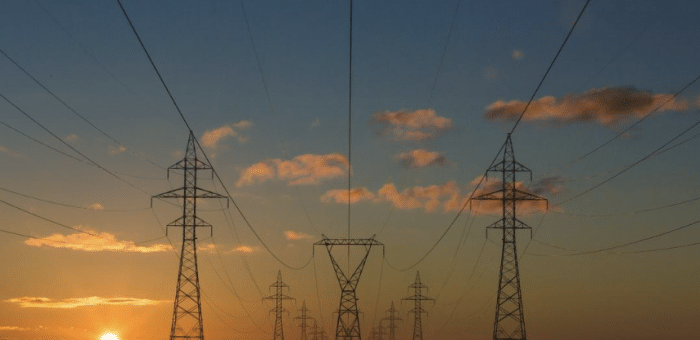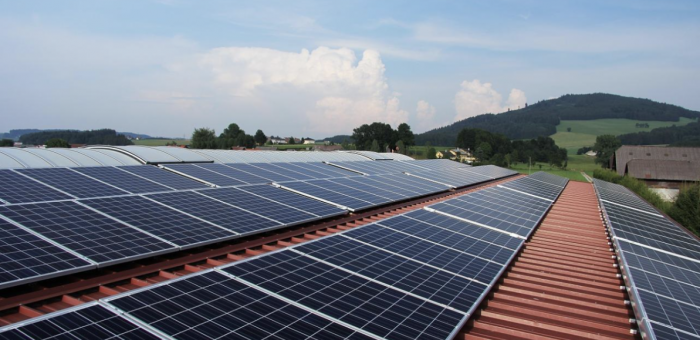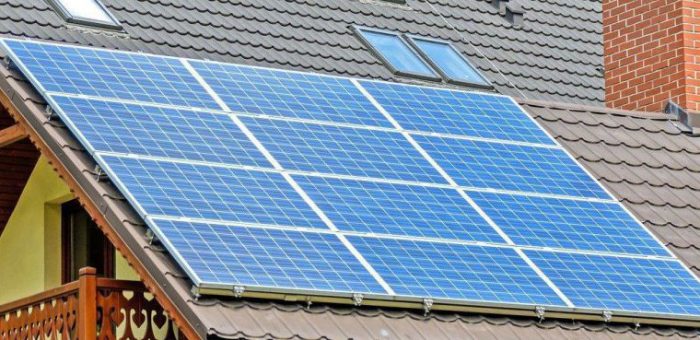We rely on electricity every day in every part of our lives. But we don’t notice that we’re connected at every moment until it’s gone. We never know when a power outage is going to happen, and because living without electricity makes our daily routines vastly different, it’s crucial to be prepared.
Usually, extended power outages happen because of a natural disaster, like a tornado, hurricane, or winter storm. While we can keep an eye on the storm and when it’s coming, we never know if the power will go out. That’s why you need to be prepared now. Even if no storm is on the horizon, it’s important that your home is always prepped for a power outage.
If you wait to prepare until a storm is coming, that’s when you’ll encounter empty shelves at the store and potentially no more water bottles to stock up on. Don’t be caught in an emergency with no plan. Make sure you stock up on all the necessities now.
[ctafirst]
Emergency Water Supply
Water is the most important essential that you’re going to need. Every person in the home needs 1 gallon of drinking water per day. But you also must have water for cooking, cleaning, and hydrating or cleaning your pets. You should always keep an emergency supply of water somewhere in your home. (Remember 1 gallon, per person, per day.)
Fill your bathtub
If you happen to be caught in an emergency and the store shelves don’t have any more water, fill up your bathtub. A standard bathtub holds about 100 gallons of water. To make it sanitary to drink, you can purchase a bathtub bag, and this water can also be used for hygiene and cooking.
Melt snow
If you live somewhere it’s snowing, you can melt snow to drink it, but don’t eat it. Your body will have to use energy to process cold snow but waiting for it to be warm water will keep you hydrated for longer.
Catch rainwater
As a very last resort, you can catch rainwater in buckets. But it isn’t advisable to drink it because it could be contaminated. Boiling it may not be enough because if there are heavy metals in the water, they would need to be filtered out. You can use the rainwater for hygiene, but that’s it.
Try to relax
If you can, try to move around very little. You don’t want to sweat and lose any of your hydration. Stay in the shade and stay cool. If you are in a cold state, wear sweaters and blankets to stay warm. Shivering will make your body use more energy.
Emergency Food Supply
You must leave your refrigerator and freezer closed tight when there’s no power. As long as it stays closed, your food will stay good for 4 hours. Once you open the fridge, eat the perishables that you can, but then throw the rest out.
It’s imperative to stock up on non-perishables. Like canned soups, canned meat, canned veggies, and any snacks like granola bars, chips, and other shelf-stable items. If you want to heat your food, try to cook outside if you can, or you can use your gas stove. However, never use the gas stove to heat your home, and make sure to turn it off when you’re done cooking. A gas stove releases carbon monoxide, a gas that is odorless and colorless, and if you breathe in this gas, it can have deadly consequences. That’s why it’s important to never heat your home with your stove or oven.
Always have two weeks of an emergency food supply prepared. You don’t want to visit the supermarket right before the storm comes because the shelves may be picked through, leaving you with little to nothing.
Lighting
Before a power outage, stock up on flashlights and lots of batteries. If you think you have enough batteries, buy more just to be safe. Don’t use candles or kerosene lamps because of the fire risk.
[ctafirst]
Heating and cooling
Don’t use your stove or oven to heat your home to stay warm. Instead, build a blanket fort or use the cushions on your couch. It may seem silly, but the low and small shelter will keep you and the air around you nice and warm. Wear sweaters and use blankets to trap your body heat as well.
To stay cool, stay in the shade, and if you can, dip some rags in water and tie them around your pulse points, which are your wrists and neck (not too tight because you don’t want to cut off circulation.) These pulse points are your body’s quick-cooling spots. Make sure to stay hydrated as well.
Use a generator carefully
If you have a generator, never use it inside the home. Use it outside only but keep it away from windows. A generator will release carbon monoxide, and if inhaled, it has deadly consequences.
Hygiene and Sanitation
Stocking up on plenty of water will allow you to maintain your hygiene. Wash your hands before eating and keep yourself clean like you normally would. The most important places to maintain hygiene are your armpits and your groin.
Medication and First Aid
Stock up on your important medications. Ask your pharmacy to give you an extra two weeks or a month if possible.
If you have medications that need to be refrigerated, the medicines may need to be replaced if allowed to reach room temperature. Contact your pharmacists or health care provider for instructions.
Keep a full tank of gas and an extra supply
As a general rule, you should fill up your gas tank every time it falls to half a tank. But at the very least, fill up your gas tank if a storm is coming. Have an extra supply of gas on hand if you need to travel elsewhere or need more gas for your generator.
Keep cash on hand – banks and ATMs will be closed
Keep cash on hand. During a power outage, banks and ATMs will be closed. This means you will only be able to buy anything with cash only.
Stay with family or friends if they have power
If you have friends and family that live in the same city as you, and they have power, ask to stay with them. Or, if you do have power, invite your friends and family to stay with you. Consider traveling if you can if your family lives in a different city.
Always be prepared for a power outage
You never know when the power will go out. Stay ahead of the disaster by stocking up on water, food, lighting, gas, money, and medications. After the power outage, take time to inventory and replace any used items.
Being prepared is important from a safety perspective, so make sure you’re prepared today.
[ctafirst]






